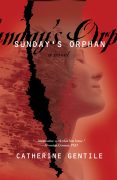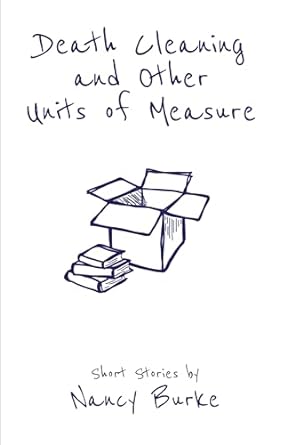On the Path to Writing Nirvana: Catherine Gentile
Catherine Gentile
 Long before I understood that letters had the power to form words that captured concepts that can be documented in black and white and all sorts of fonts, I’d created skits, puppet shows, and plays, stories hatched out of my childhood imagination, rendered orally, and later, jotted in fat-penciled, wobbly words. Those tendencies morphed in subsequent years into hours sitting at a grammar-school-sized desk with my typewriter, followed by an adult-sized desk and my computer, writing close to ten-thousand words a day. A writer’s dream? Not necessarily.
Long before I understood that letters had the power to form words that captured concepts that can be documented in black and white and all sorts of fonts, I’d created skits, puppet shows, and plays, stories hatched out of my childhood imagination, rendered orally, and later, jotted in fat-penciled, wobbly words. Those tendencies morphed in subsequent years into hours sitting at a grammar-school-sized desk with my typewriter, followed by an adult-sized desk and my computer, writing close to ten-thousand words a day. A writer’s dream? Not necessarily.
You’ve heard of writers who sat for such long hours with their keyboards on their laps that they gained weight, drove their blood pressure off the charts, and watched their legs and ankles swell like balloons. My wholehearted enthusiasm endured a similar but less visible punishment—an injury to the lower lumbar spine. To this day, I visit my physical therapist once a month and let her skilled hands reintegrate my vertebrae into alignment with the rest of my spine.
That injury was my wake-up call and, I feared, an introduction to the possibility that I might need to rework my plan to become a writer. During the late 1990s, the Internet was alight with reports of office workers who, wed to their computers, were being diagnosed with health issues. Welcome to the age of technology. Ergonomics became a household word, and a clever Australian inventor introduced standing computer stations that appealed to those of us who could attest to the adage, sitting is the new smoking!
I can safely say it has taken me the last twenty-plus years to wrap my head around the need to integrate a healthy lifestyle into my writing. Please note, it wasn’t that I was trying to integrate my writing into my life; I’d been quite successful at doing that and, in the process, encountered a monster that, left uncontrolled, tried to dominate my every waking hour. I needed to merge my life and writing, such that both elements would strike a healthy, pleasing balance, seasoned with challenges reasonable enough to stimulate without being overwhelming, and flexible enough to integrate into my daily routines.
Part of the difficulty rested in how I envisioned that integration, the marriage of writing and living a get-outdoors-and-work-up-a-real-sweat kind of life. One that would fulfill my desire to engage in activities that are thoughtfully rendered, gently delivered, and satisfying for those around me and for me as well. While this entertained my favorite perfectionist fantasy, it had yet to approximate real life, where competing demands, commitments, and limited physical and psychological energy played into less fulfilling outcomes.
Armed with this fresh determination to further an integrated writing life, I applied and was accepted to an international writer’s conference that convened in St Petersburg, Russia. Within the same week, one of my short stories was named a finalist in a stateside writing contest. I shared my newfound realization with my father, “My writing is capable of competing with what others are writing,” I told dad who, despite his less than competitive appearance, beamed.
Shortly thereafter, my father stopped answering his phone. When I finally reached him, I was hurt, miffed, confused. “What’s going on?” I asked. He introduced me to the concept of “mild cognitive impairment”, a term the geriatric psychiatrist had used to describe my mother’s cognitive status. Still reeling from the implications of MCI, I learned how rapidly that descriptor advanced to moderate stage dementia, and the impact those terms would have on my father’s well being as well.
I spent a great deal of time at my parents’ home, trying to support in any way I could: engaging my mother in hand-over-hand activities which she could enjoy. As most caregivers will attest, this type of interaction has its rewards and the potential to be mind-numbing, punishing. My writing began to serve a new purpose: to sort out confusing physical, emotional, and social details of the challenges confronting our family.
Fast forward five years, when my mother’s condition deteriorated so markedly that we had no choice but to place her in a memory care facility. I spent hours on that unit with my mother, learning the ins and outs, ups and crashes of life in a residential setting. Trained to observe behavior and withhold judgment and emotion, I was the model helper-daughter. But in the privacy of my own home, my heartbreak erupted into frustrated tears coupled with furious bouts of writing. My first novel, The Quiet Roar of a Hummingbird, the story of a family’s struggle to deal with their beloved matriarch’s dementia, was the outcome.
Words, I came to realize, had the power to rescue me through reading them, but, even more importantly, through my writing. The act of writing is more than assembling letters and words into concepts, it’s a part of me that emanates from my fingertips. I had moved beyond developing strategies to integrate my life into my writing; life had done that for me. Between a permanent injury and a heart that had sustained more meltdowns than I care to admit, life had become part of my writing.
Did those encounters bring me face to face with writing nirvana? Not yet. I still juggle competing demands and distractions, but even after engaging in healthy lifestyle distractions, I return to my stand-up computer station, filled with inspiration, more dutiful than ever.
—
CATHERINE GENTILE’S fiction received the Dana Award for Short Fiction. Her debut novel, The Quiet Roar of a Hummingbird, was a Finalist in the Eric Hoffer Novel Award for Excellence in Independent Publishing. Small Lies, a collection of short stories, was released in October 2020. Her nonfiction covers a variety of topics and has appeared in Writers’ Market, North Dakota Quarterly, Down East, and Maine Magazine. She currently edits and publishes a monthly ezine entitled Together With Alzheimer’s, which has subscribers throughout the United States. A native of Hartford, Connecticut, Catherine lives with her husband and muse on a small island off the coast of Maine. Her latest novel, Sunday’s Orphan, is scheduled for release in September, 2021.
www.catherinegentile.com.
SUNDAY’S ORPHAN
 1930, MARTONSVILLE, GEORGIA: After her adoptive uncle’s death, twenty-year-old Promise Mears Crawford, a free-thinking white woman, finds herself trapped in an identity not of her making, betrothed to a man not of her choosing, and entwined in the aftermath of Martonville’s first racial murder in twenty years.
1930, MARTONSVILLE, GEORGIA: After her adoptive uncle’s death, twenty-year-old Promise Mears Crawford, a free-thinking white woman, finds herself trapped in an identity not of her making, betrothed to a man not of her choosing, and entwined in the aftermath of Martonville’s first racial murder in twenty years.
Three days of unprecedented occurrences entice Promise to explore new truths about her family’s complicated history and press beyond the choke hold of her own prejudice, past the boundaries of love and lies, to untangle the deceptions permeating her life and her community. Years later, in New England, Promise confesses the details of her struggle to ferret out her history amidst a culture of lofty idealism and family secrets—including the blackmail scheme that ultimately freed her to embrace a new identity. Sunday’s Orphan will immerse readers in an emotional journey through the depiction of life in the Jim Crow South, a chapter of our country’s history riddled with paradoxes: outrage and compassion, terror and boldness, shame and the most profound outpouring of human love.
Praise for Sunday’s Orphan:
Catherine Gentile brings Jim Crow to vivid, heartbreaking life in this tale of a complicated, endearing woman caught between the cruelty of her time and the emerging secrets of her own identity.
–Monica Wood, author of One In a Million Boy
Compelling, timely, and beautifully written.
“The book lays bare the cruelty and hypocrisy of Jim Crow throughout the novel, and its greatest strength is in how it sets up mysteries and gut-punch reveals. Readers will sometimes need a moment to catch their breath, even as they keep turning pages.”
—Kirkus Reviews
SUNDAY’S ORPHAN…
… is just plain excellent. Through its acuity of expression, emotional and psychological insights, and the unfolding of characters, it allows us to enter an historical period–the Jim Crow South–that is critical to understanding racism today.
–Jeremiah Conway, PhD, Professor Emeritus, Philosophy Department, University of Southern Maine, author of The Alchemy of Teaching; The Transformation of Lives
BUY HERE
Category: Contemporary Women Writers, How To and Tips
























